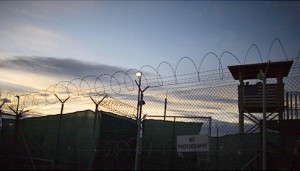President Expected to Sign National Defense Authorization Act

By Debbie Gregory.
Congress sent President Obama a revised $607 billion defense policy bill that the Senate overwhelmingly approved, 91-3, just days after the House passed the bipartisan measure, 370-58.
In spite of the National Defense Authorization Act limitations, especially the provisions designed to block Obama from moving some detainees to federal prisons, the president is expected to sign to sign the bill.
White House spokesman Josh Earnest said there are too many important provisions in the defense bill for another veto.
“I would expect that you would see the president sign the NDAA when it comes to his desk,” he told a news briefing.
Closing the prison at Guantánamo Bay is an unfulfilled promise of Mr. Obama’s presidency, and Earnest said that the administration would continue to press that goal. “[The signing] certainly does not reflect a change in our position, or the intensity of our position, about the need to close the prison at Guantanamo Bay.”
The annual defense policy bill has passed each year for more than half a century and is one of the few bipartisan achievements of the current Congress.
Among the changes: the bill updates the military retirement system; establishes a new 401(k)-style retirement benefit for all service members; adds a number of reforms to the Pentagon’s acquisition system; strips substantial authority for acquiring new weapons from Pentagon leaders, authorizing the military branches to oversee their own programs; imposes new restrictions on transfers to third countries, including Libya, Syria, Yemen and Somalia.
Congress must pass the remaining 11 appropriations bills, or a larger omnibus agreement, by December 11th , when a temporary spending measure expires. Despite the budget accord, the Senate Democratic leader, Harry Reid of Nevada, warned that a government shutdown was still possible, but said there had been progress toward a larger accord on appropriations.
Military Connection salutes and proudly serves veterans and service members in the Army, Navy, Air Force, Marines, Coast Guard, Guard and Reserve, and their families.


















